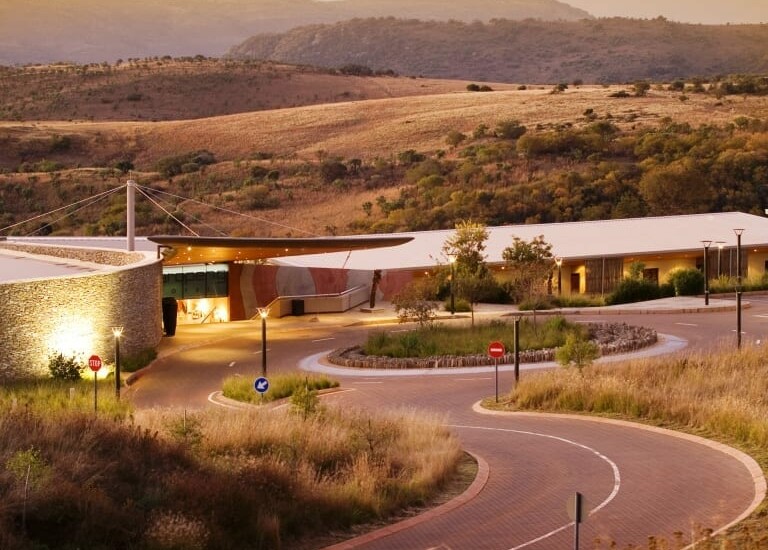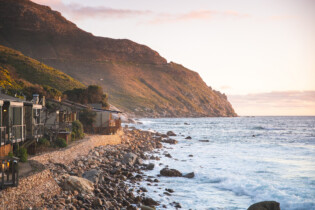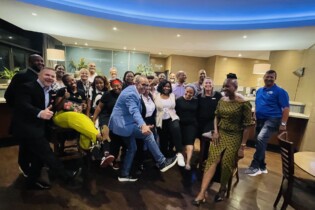“The pressure is on,” admits Event Greening Forum (EGF) Chairperson Greg McManus. “That was always going to be the case, as we preach sustainable event practices and now we need to practice what we preach!”
This is in reference to the EGF’s upcoming Master Class on Wednesday 10 July and Conference on 11 July 2019. Both events target the broader MICE events industry and their information-driven programmes will help attendees to learn practical ways to create more sustainable events. The EGF needs to make sure both events clearly demonstrate sustainable principles. Here are some the ways it is doing this.
The venue sets more than the scene
Choosing the right venue is critical to hosting a sustainable event. “You need to find a venue that has already incorporated sustainability into its systems, and can support your efforts,” says McManus. “We chose Maropeng, which has been third certified as a green venue. This stamp of approval means we can be assured that there is no greenwashing.”
Maropeng is an ideal choice for the EGF, given the number of sustainable programmes it has in place. For example:
- A black and grey water recycling system with a wetland recaptures and recycles water at the Visitor Centre, Conference Centre and Hotel. Hominin House, where the EGF events will take place, diverts its water to its vegetable gardens.
- Solar panels power specific zones of Maropeng, and energy-saving bulbs are used throughout the property.
- A three bin system (recyclable, non-recyclable and organic waste) keeps waste separated at source, which helps to limit contamination.
Additionally, Head Chef Peter Langa says the kitchen has adopted a waste minimisation philosophy. “Part of our kitchen training includes a ‘one ingredient, many recipes’ component. This stretches our staff to see how they can use all the different parts of an ingredient in creative ways so nothing is wasted.”
The venue has also banned plastic straws, polystyrene take away containers and paper cups, and has replaced these with biodegradable alternatives.
- Maropeng’s procurement policy supports local businesses. Being nestled among farmland, this means lots of fresh, seasonal food grown within a few kilometers radius ends up on the menu. And small local businesses supply goods such as toiletries for the hotel.
- As part of its CSI, Maropeng supports a range of local community projects.
As well as benefiting from the venue’s built-in sustainable features, the EGF is also introducing a number of other event greening initiatives.
Digital perks
Flock Eventing Platform is providing a mobile app for the conference, which will help delegates maximize their learning opportunities. Mike Lysko, the CEO and Founder of Flock, says, “We are excited to see all the attendees of the Event Greening Forum Conference interact and engage with the sessions and speakers through the live polls, live questions and answers, and having access to all information and documents in the palms of their hands.”
The app will also help the EGF collect data to measure the carbon footprint of the event, and gauge interest, sentiments and opinions on the topics covered.
Green goods
Resource Design is providing display collateral made from its Eco Standard certified Xanita board, a recycled and recyclable material making it a zero waste solution.
A few handpicked exhibitors will be showcasing their sustainable event solutions. They will be re-using raw wood exhibition pods from Meetings Africa’s Sustainability Village, as sponsored by Scan Display.
Delegates will be able to win some great prizes, sponsored by Johannesburg’s first zero waste store the Refillery, and a black female owned SMME, Soweto Sewing.
It’s the small things that count
McManus highlights that it is important to show that event greening can be simple and not cost anything – or can save money. Therefore, the EGF has also requested the events:
- Serve water in jugs and glasses (no bottles);
- Serve food with re-usable crockery, cutlery and serviettes;
- Use bulk dispensers rather than items in single serving packaging;
- Skip using tablecloths, so less laundry is created post-event.
“Anyone can start introducing simple event greening actions like these – and we encourage them to,” adds McManus.
If you work in the MICE events space, these are the must-attend sustainability events of the year in South Africa. To find out more and to register, go to www.eventgreening.co.za/2019-conference/.







